Corrosion on Lead Screw Assembly
Gideon Analytical Laboratories received several contaminated lead screw assemblies. Also received were three insulin samples, one grease sample, and several new parts making up the lead screw assembly. Lead screws are designed to translate turning/rotary motion into linear motion. The contamination on the shaft of the assembly was primarily concentrated between the bearing and the ball seal. The goal was to identify and determine the cause of the contamination.
Gideon Analytical Laboratories primarily used FTIR and SEM-EDS analysis for diagnostics. FTIR analysis was initially performed using an Analect DS-20 FTIR with an Analect XAD microspectrophotometer equipped with a small chip, high sensitivity MCT detector. The FTIR analysis revealed that the contaminate had a high degree of hydration, oxygen, and salt. The large contamination of salt will tend to migrate towards hydrated substances. The FTIR analysis also revealed that APIDRA was an integral component of the contaminate. SEM-EDS analysis was utilized to determine whether the contaminants were coming from the inherent materials or an outside source.
The analysis netted some concrete results. There was salt in the contamination, which makes corrosion inevitable in moist environments. Iron was also found in the contaminate. The ball seal on the lead screw had a large portion of iron. The insulin (APIRDA) was not compatible with the iron in the ball seal and thus leaching out a substance to cause the insulin to gel. The silica on the shaft indicated the part has seen some type of dirty environment.
Gideon Analytical Laboratories provides failure analysis for a variety of companies in the electronics industry. For over two decades, companies have relied on Gideon Analytical Laboratories reveal the nature and causes of failures, both in the production and in the field. Rest assured with the confidence that failure analysis by Gideon Analytical Laboratories can provide.
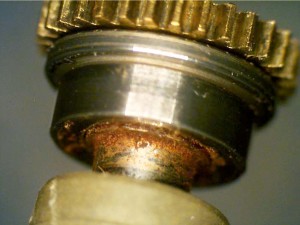
Corrosion on lead screw assembly
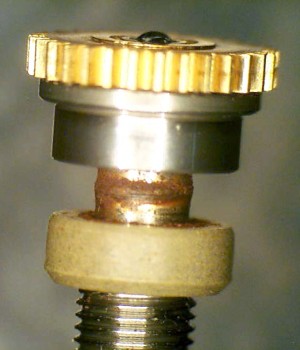
Lead Screw Assembly
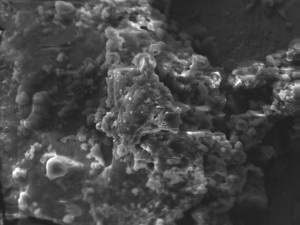
Salt crystal deposits on shaft
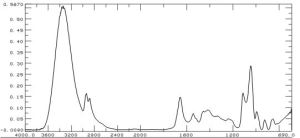
HUNALOG insulin spectra
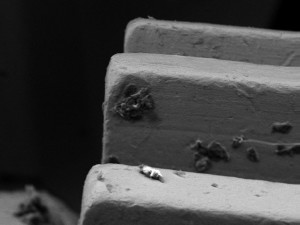
Cog contamination